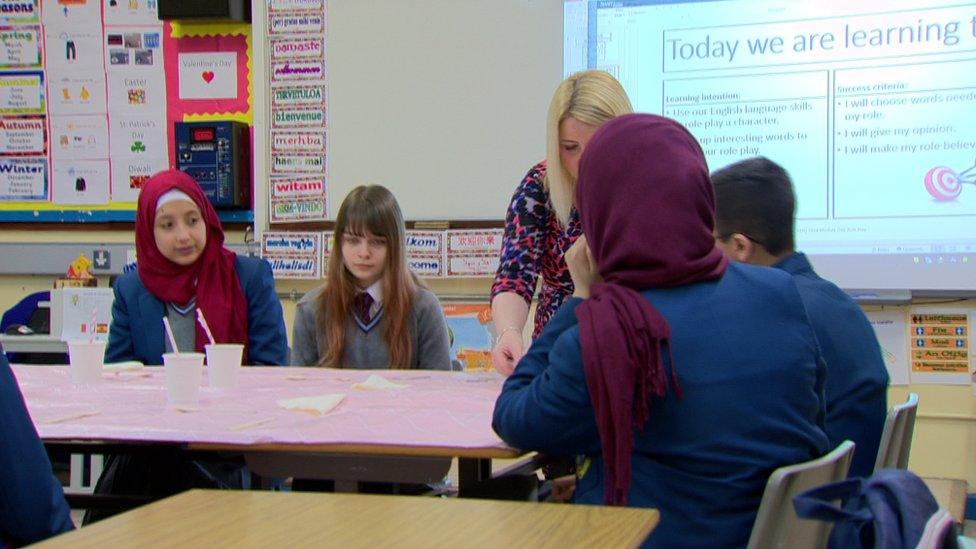Abed's story: A Syrian refugee's journey to Belfast
- Published
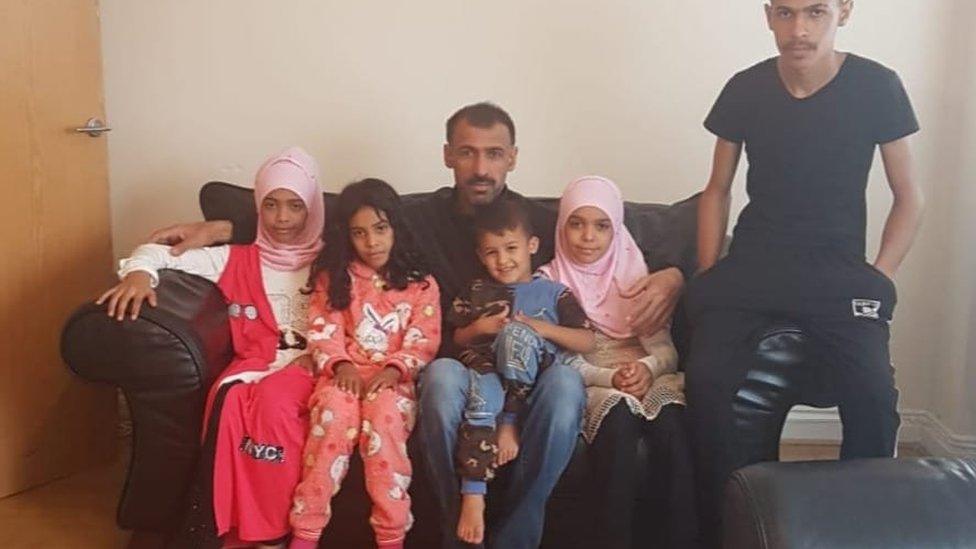
Abed was reunited with six of his children last month with help from the Family Reunification Scheme
When Abed Alkhalaf fled the Syrian war for Belfast five years ago, he was forced to leave his wife and seven children behind.
That is the harsh reality for many refugees who settle in Northern Ireland, which has proportionately more Syrian refugees than any other part of the UK.
He left his home country in 2015 due to the war and conflicts from what he called "corrupt and criminal organisations against humanity."
His wife and seven children were living in Syria, unable to leave as they were directly in the line of conflict.
They lived in Deir ez-Zor, the largest city in eastern Syria, controlled by fighting factions such as Al-Nusra, the Islamic State group (IS) and QASD militia.
Fleeing persecution
Abed said these organised groups were notorious for killing and terrorising people, and stealing their money and property.
"The situation was hell, more than that, more than you can imagine," he said.
"For me, I saw everything with my own eyes. This is only a small part of the suffering that I and many people have faced."
The charity Together Now operates a scheme that helps refugees in the UK reunite with family members they had to leave behind whilst fleeing persecution.
It said that many refugees are forced to leave their family members behind whilst fleeing persecution.
Refugees often have to flee their homes and use whatever financial resources they have to reach safety.
Individuals in this situation may not have the means to fund travel for their family or other costs associated with reuniting with them.
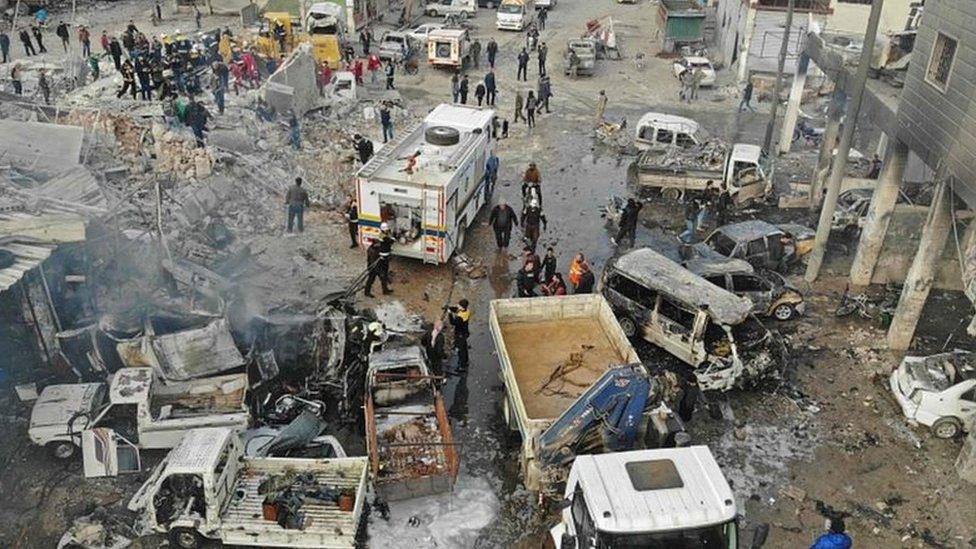
Syrian air strikes have caused thousands of civilian casualties, with millions fleeing
Abed's journey to the United Kingdom was anything but simple.
He managed to escape Syria and travelled through Europe, making it to the Greek island of Chios where he met other refugees trying to migrate to Macedonia.
After months of hardship, dangers and fatigue while travelling through Hungary, Austria, Germany and France, he reached the UK where he claimed asylum and was given residence papers.
A 3,000 mile journey
More than 3,000 miles away, Abed's wife and seven children attempted to move to neighbouring countries but IS controlled entrances to the city from 2013 until the end of 2017, and no one could leave.
"I was in constant contact with my wife and children, and I did not miss a moment," he said.
"I thought about them during the day, but in every moment I lived far away from them I suffered a lot in order to save them money for food, drink, medicine, home and clothing."
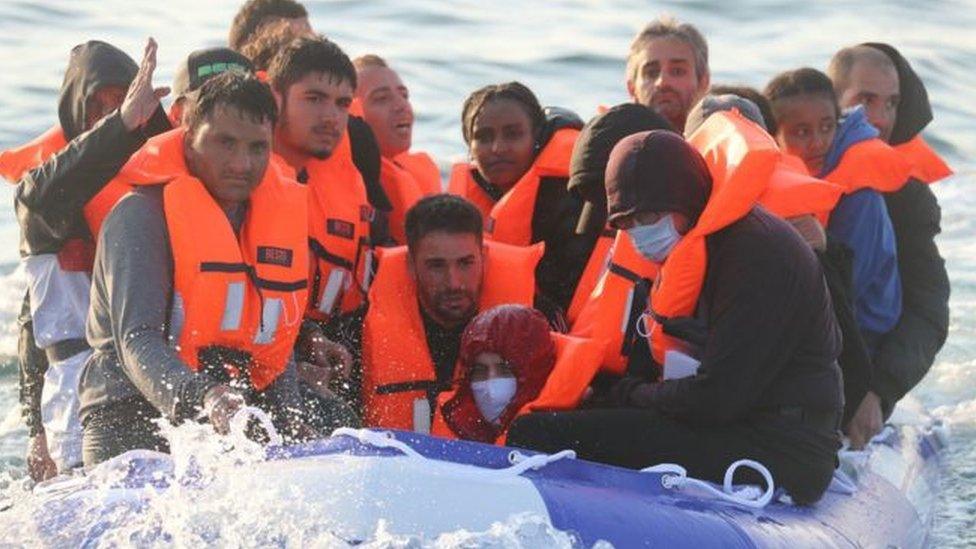
The UN says more than 13 million Syrians have had to flee their homes, more than half the country's population
They made it to the capital, Damascus, in 2017 to attain new immigration papers, which they had lost in the war.
They fled to Beirut to conduct their first visa interview in 2018, where they were required to send their papers from the consulate office in Lebanon to the British Embassy in Amman, Jordan.
Then, the first refusal came. What followed was months of visa rejections and soon their money ran out.
"The counsellor was not convinced that this was my wife and children and asked me to present evidence, but I did not have any evidence," he said.
"That was a difficult time. It was taking months between the rejections, months of waiting and suffering."
Refusals
After providing DNA analysis to prove Abed was the father of his children, the family's lawyer told them to appeal the decision in court, so the appeal papers were submitted and they waited one year for the hearing.
Their visas were finally approved in November 2019 but then the Coronavirus pandemic began, leaving Abed worried if he would ever see his family.
His wife and children were told to go to the consulate office in Lebanon to present the required papers and collect their visas earlier this year.
However, when his wife went to collect them, she only found six visas, leaving her stranded in Lebanon with their youngest child.
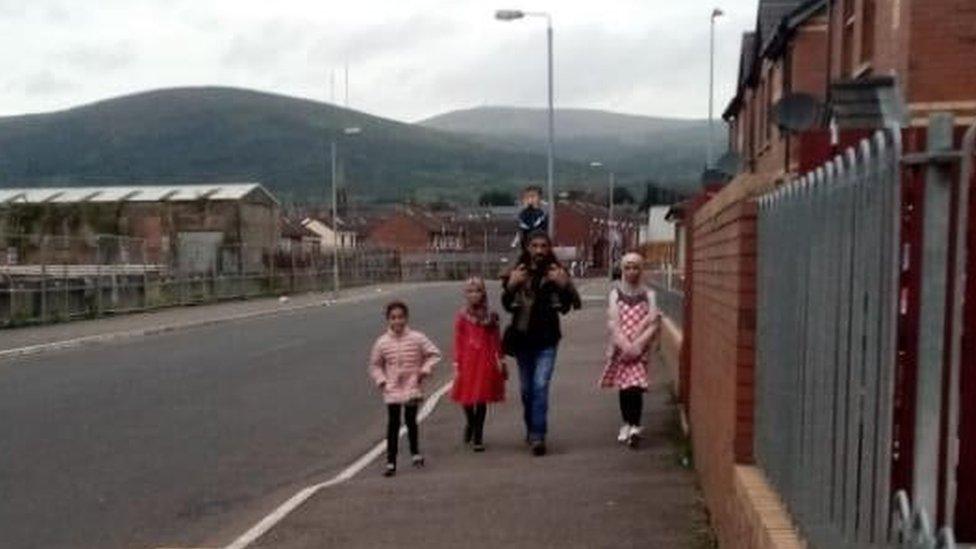
Abed and his family are adjusting to life in Belfast while they await the arrival of his wife and youngest daughter
Last month, six of his children were flown in to join Abed in Belfast.
They were reunited by Together Now and visas for his wife and youngster daughter have now been issued.
They are due to travel to Northern Ireland in the coming weeks.
- Published17 September 2019
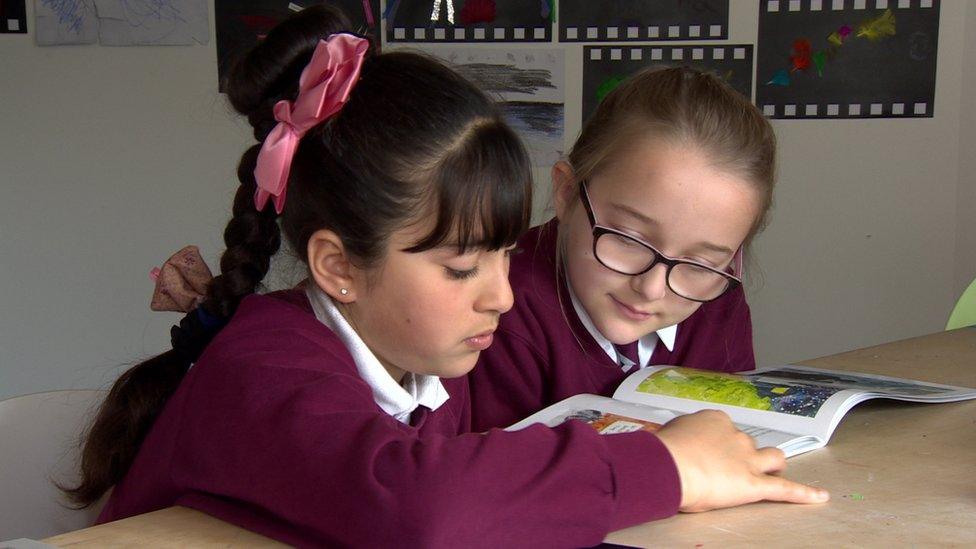
- Published12 November 2019
